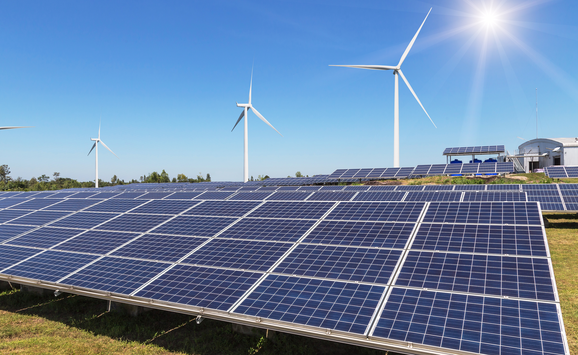Each week, I review the papers, studies, reports, and briefings posted over at the RFF Library Blog.
Draft House Legislation Allowing States to Opt-out of the Clean Power Plan
[AIMO.com] On Tuesday, Senate Majority Leader Mitch McConnell (R-KY) put forward a budgetary amendment to allow states to opt out of the Environmental Protection Agency’s Clean Power Plan, which seeks to reduce greenhouse-gas emissions from the nation’s power plants by 30% by 2030. The Senate could vote on the budget this week… - via US House, Energy and Commerce Committee, Energy and Power Subcommittee
[Slate] On Monday, researchers from Yale and Utah State University unveiled a new statistical technique that allows an in-depth accounting of Americans’ attitudes toward global warming. The resulting maps—down to the county level—reveal some interesting takeaways. - Yale University | Utah State University
DC Microgrids Scoping Study–Estimate of Technical and Economic Benefits
Microgrid demonstrations and deployments have show the ability of microgrids to provide higher reliability and higher power quality than utility power systems and improved energy utilization. Los Alamos National Laboratory has released a report titled DC Microgrids Scoping Study: Estimate of Technical and Economic Benefits, which presents the results of a study by several national labs and funded by the Office of Electricity Delivery & Energy Reliability. The study provides a preliminary examination of the benefits and drawbacks of potential DC microgrid applications relative to their AC counterparts, using several metrics for comparison, and offers recommendations for potential future research and deployment activities. - Los Alamos National Laboratory for US DOE Office of Energy Efficiency & Renewable Energy
Methods of Measuring Radioactivity in Fracking Wastewater May Be Inaccurate: Iowa Study
Background: The economic value of unconventional natural gas resources has stimulated rapid globalization of horizontal drilling and hydraulic fracturing. However, natural radioactivity found in the large volumes of “produced fluids” generated by these technologies is emerging as an international environmental health concern. Current assessments of the radioactivity concentration in liquid wastes focus on a single element – radium. However, the use of radium alone to predict radioactivity concentrations can greatly underestimate total levels. - Understanding the Radioactive Ingrowth and Decay of Naturally Occurring Radioactive Materials in the Environment: An Analysis of Produced Fluids from the Marcellus Shale / by Andrew W. Nelson, et al.
The Clean Power Plan Benefits Low-income Communities: NRDC Study
[From a Climate Wire article by Emily Holden, sub. req’d] The Natural Resources Defense Council yesterday released a report touting the rule’s health and economic benefits to rural and low-income communities… - Natural Resources Defense Council
Follow the RFF Library Blog via RSS feed or @ChrisClotworthy on Twitter.




